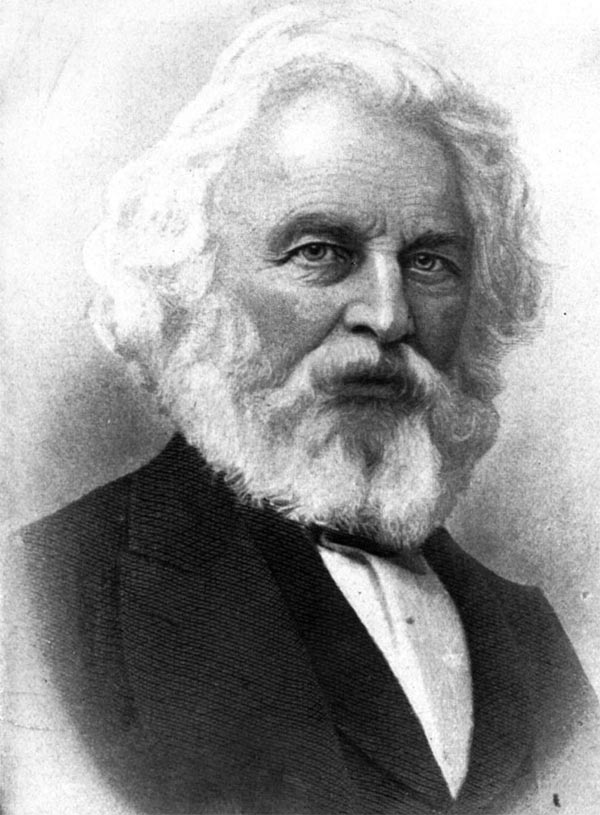Do You Hear The Bells?
Henry Wadsworth Longfellow, my personal favorite poet, wrote the poem "Christmas Bells" on Christmas Day, 1864.
John Baptiste Calkin would later use the words of the poem to write the song we know as, "I Heard The Bells On Christmas Day."
But the story behind the poem is a compelling one.
Broken people across this nation and around the world suffer loss and hopeless grief---wrapped in silence.
It is a story of personal loss and restoration.
Here's the story:
On July 9, 1861, the Longfellow family suffered a personal tragedy.
An oppressive heat wave in Massachusetts had prompted Longfellow's wife, Fanny, to trim the heavy locks of their seven-year-old daughter, Edith. Fanny decided to keep the locks of hair, so she placed them in an envelope. As she heated the wax to seal the envelope, hot drops of wax fell onto her dress.
A sudden breeze through an open window caused the dress to ignite. In an effort to protect her young daughter, Fanny ran into the study.
Longfellow first tried to put out the fire using a rug. When that failed he threw his body onto his wife, severely burning his face, arms and hands.
Fanny Longfellow died the next morning.
Longfellow was so stricken by her death that he couldn't even attend the funeral. Later that year, on Christmas Day, 1861, Longfellow wrote in his journal, "How inexpressively sad are all holidays. I can make no record of these days. Better leave them wrapped in silence. Perhaps some day God will give me peace."
On Christmas Day, 1862, he wrote, "'A merry Christmas,' say the children, but there is no more for me."
In the late Fall of 1863, Longfellow received word that his oldest son, Lieutenant Charles Longfellow had been severely wounded and crippled in a Civil War battle.
Longfellow wrote nothing in his journal for Christmas 1863.
But on Christmas Day, 1864, renewed life and restoration sprang up within his heart. Healing from despair had begun. Hope welled up in his spirit.
And he wrote:
"God is not dead, nor doth He sleep; The wrong shall fail, the right prevail."
In 1872, John Baptiste Calkin set Longfellow's words to music. We know it as "I heard The Bells On Christmas Day."
I Heard the Bells on Christmas Day
Their old familiar carols play,
And wild and sweet the words repeat
Of peace on earth, goodwill to men.
I thought how, as the day had come,
The belfries of all Christendom
Had rolled along the unbroken song
Of peace on earth, goodwill to men.
And in despair I bowed my head:
"There is no peace on earth," I said,
"For hate is strong and mocks the song
Of peace on earth, goodwill to men."
Then pealed the bells more loud and deep:
"God is not dead, nor doth he sleep;
The wrong shall fail, the right prevail,
With peace on earth, good will to men."
Till, ringing singing, on its way,
The world revolved from night
Till, ringing singing, on its way,
The world revolved from night to day,
A voice, a chime, a chant sublime,
Of peace on earth, good will to men!
Four months after Longfellow penned these words, the Civil War ended.
Both Longfellow and the nation had begun the long road to recovery and restoration.
The grief over Fanny's death lessened, but never completely left.
Eighteen years after her death, Longfellow wrote the sonnet, "The Cross Of Snow," in which he said, "Such is the cross I wear upon my breast\these eighteen years, through all the changing scenes\And seasons changeless since the day she died."
On Christmas Day, 1864, the sound of Christmas bells pierced the grief and sadness of unexplainable loss, bringing to Longfellow the beginning of restoration, peace, and healing.
God is not dead, nor does He sleep.
Right will prevail over wrong.
There can be personal peace here on earth.
The message of the bells is, "Joy To The World, The Lord Has Come."
The message of Christmas is that He came because God loves you. And through His coming---His birth, death, and resurrection, He provided forgiveness, healing, restoration, personal peace, and eternal life.
Listen. Do you hear the bells?
They are ringing now.
God bless you. Merry Christmas.


